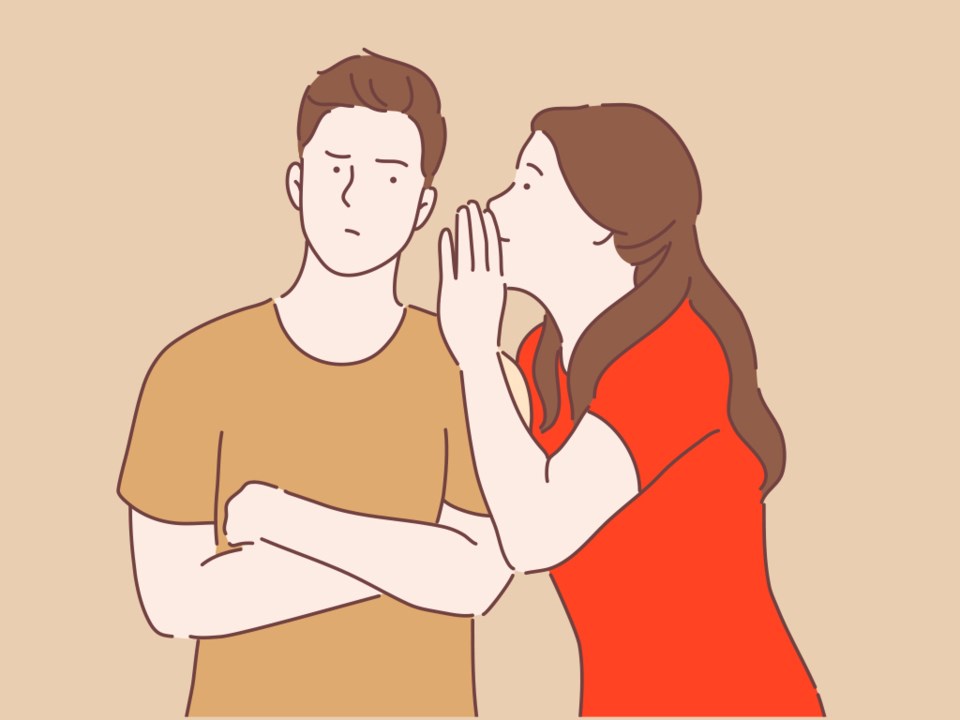We all have people in our lives we would rather avoid spending time with.
Whether it’s a chatty co-worker who constantly tries to make plans after work or a neighbour whose company you no longer enjoy, there are certain relationships that are harder to distance yourself from due to their proximity.
But, according to experts, “breaking up” with such people can be done.
“Just because you see someone often, because of work or living situations, doesn’t mean you have to become friends or maintain friendships with those people forever,” said Laura Bloom, a Toronto-based registered social worker.
The key to ending these relationships, Bloom said, is through communication and kindness.
How to break up with someone
Alyson Schafer, a parenting expert and family counsellor, says it’s best to show respect when ending or establishing boundaries in a relationship. While she admits it’s easier said than done, remaining firm but fair is important — especially if you’ll be running into this person often.
If there’s a judgmental person in your ski club, for example, who is part of your regular social group, you might want to “drift away” from them with kindness, Schafer said.
“It doesn’t have to be black or white or abrupt,” she said.
“Friendships are more like concentric circles and you may just be moving someone to a further away ring… to a more distant ‘keep in touch’ and ‘be polite but don’t share everything’ style of friendship.”
Joshua Peters, a Toronto-based registered psychotherapist, says relationships have different levels of intimacy. If exchanging pleasantries with someone is a low emotional commitment, that might be the best route.
“It is OK to maintain casual relationships that only really involve chats about the weather or how bad the traffic was this morning,” Peters said.
“Think of these less intimate relationships as ‘verbal play’ that are safe and sometimes mundane, but still allow you to connect.”
Having ‘the talk’
If someone doesn’t pick up on your withdrawal behaviour, Schafer said, you may need to talk to them about why you are not interested in a more intimate relationship.
If there’s a problem you believe can be resolved, explain to them how you are feeling and try to work out a resolution. But if your mind is made up and you have no interest in a relationship, you might need to be direct, Schafer said.
“Respectfully share with somebody: ‘Hey, you’re a lovely person and I’ve enjoyed getting to know you better, but I think our lives are on different paths and trajectories, and I’m going to put my energies into other relationships. I hope you understand,'” she said.
“That’s something fair, open and truthful in a way that’s not hurtful.”
Bloom said it’s important to resist the urge to be mean or rude, and understand your own reasoning for wanting to end the relationship before blaming others.
“Be sure to use ‘I’ statements and avoid placing blame, like ‘I am feeling too overwhelmed at the moment,’ or ‘I’m not sure our interests match at this time,'” she said.
“Avoid over-explaining; just assert your boundaries and repeat as needed. You don’t need to add a lot of extra [information] as it can just complicate things.”
If a relationship is toxic or dangerous, however, you don’t need to engage in communication or justify your actions, Bloom added.
“Either be direct, if it is safe to do so, or ghost away to maintain your healthy boundaries.”
Bottom line
All experts agree that while “breaking up” with people isn’t always easy, keeping kindness and respect at the forefront of your actions helps.
It’s normal to outgrow people or not want to invest time in certain relationships — especially if they are causing you grief.
“Whatever you decide, let your intuition guide you,” Bloom said.
“Your gut instincts will know whether it’s best to brave a conversation, gently fade away or outright ghost someone.”
Laura.Hensley@globalnews.ca
Follow @lolahensley